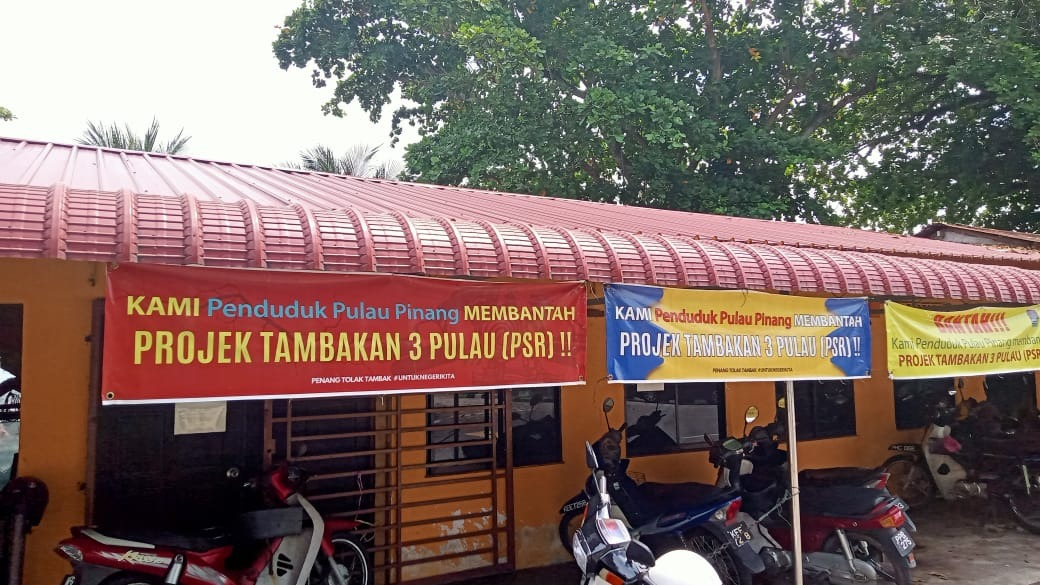Nusantarazation Liberating Malaysia and Indonesia through Decolonization and Indigenization of the Societal and Environmental Paradigms
Main Article Content
Abstract
Against the backdrop of the Nusantara Malay Archipelago’s history, the colonial legacy and the hegemony of colonial paradigms continue to dominate the present trajectories of social and political-economic realities. If this were to persist, Indonesia and Malaysia as a community of communities will continue being subjugated by these shackles of the colonial masters and can never be truly liberated to re-imagine and to realize their fullest potential based on their own mold. In this article, I examine three societal and environmental paradigms — namely the paradigm of space and property, the paradigm of knowledge, and the paradigm of development — critically examining the colonial legacies in each. I propose Nusantarazation as a discourse of decolonization and indigenization to counter the subjugating constructs by reintegrating solutions and practices from local wisdom and indigenous heritage, especially from socio-environmental ecology. In opposition to the Westphalian world-order, capitalist definitions of property, privatization and exploitation of resources, concentration of wealth, and epistemicide, I call on Nusantara perspectives of stewardship, shared spaces, commons, cultural heritage and local wisdom.
Article Details
References
Alatas, S. F. 2006. “The Autonomous, the Universal and the Future of Sociology.” Current Sociology, 54, 1: 7–23.
Amster, M. H. 2015. “Chaos and Order in the Malay Archipelago.” In Chaos and Order in the Malay Archipelago, London: Routledge, 1–22.
Bellwood, P. 1997. Prehistory of the Indo-Malaysian Archipelago. Honolulu: University of Hawai’i Press.
Clifton, J., and C. Majors. 2012. “Culture, Conservation, and Conflict: Perspectives on Marine Protection among the Bajau of Southeast Asia.” Society and Natural Resources, 25, 7: 716–725.
Coenhagen: Cramb, R. A. 2007. Land and Longhouse: Agrarian Transformation in Upland Sarawak. NIAS Press.
Dove, M. 1993. “A Revisionist View of Tropical Deforestation and Development.” Environmental Conservation, 20, 1: 17–24.
Firman, T. 2016. “The Future of Jakarta Bay.” Cities, 55, :42–49.
Geertz, C. 1960. The Religion of Java. Cicago: University of Chicago Press.
Hickling, R. H. 1961. “The Torrens System in Malaya.” Journal of the Malayan Branch of the Royal Asiatic Society, 34, 2: 1–22.
Haringsma, P. 2021. “Universities and legacy of colonial epistemicide,” University World News, 9 September 2021, London.
Holt, C. 1967. Art in Indonesia: Continuities and Change. Ithaca: Cornell University Press.
Horigue, V., A. Mason, A. C. Acosta, and A. T. White. 2017. “Cooperative arrangements and the challenge of institutional fit: The Coral Triangle Initiative.” Environmental Science and Policy, 77: 184–193.
Jomo, K. S. 2004. The New Economic Policy and Interethnic Relations in Malaysia. Geneva: United Nations Research Institute for Social Development.
Kartomi, M. J. 2012. Musical Journeys in Sumatra. Illinois: University of Illinois Press.
King, V. T. 2008. “The Sarawak Museum Journal and the Development of Museum and Archival Services in Sarawak.” Sarawak Museum Journal, 65, 86: 251–272.
Lye, T. P. 2004. “Orang Asli and Forest: The Impact of Resource Development on Indigenous Peoples in Peninsular Malaysia.” In R. L. Winzeler, ed, Indigenous Peoples and the State: Politics, Land and Ethnicity in the Malayan Peninsula and Borneo, New Haven: Yale University Southeast Asia Studies, pp. 109–130.
Maharani, C., and E. Sulasmi. 2019. “The revitalization of Wae Rebo traditional village to sustainable tourism.” Geoplanning: Journal of Geomatics and Planning, 6, 2: 103–112.
Matusky, P., and S. B. Tan. 2004. The Music of Malaysia: The Classical, Folk, and Syncretic Traditions. Aldershot: Ashgate Publishing.
Nicholas, C. 2000. The Orang Asli and the Contest for Resources. Indigenous Politics, Development and Identity in Peninsular Malaysia. Copenhagen: IWGIA.
Peluso, N. L., and P. Vandergeest. 2001. “Genealogies of the Political Forest and Customary Rights in Indonesia, Malaysia, and Thailand.” Journal of Asian Studies, 60 3: 761–812.
Parekh, B. 2006. Rethinking multiculturalism: Cultural diversity and political theory. London: Palgrave Macmillan.
Potter, L. 1997. “The Politics of Decentralization in Indonesia’s Forests.” In Pierce Colfer, C. J., and D. Capistrano, The Politics of Decentralization: Forests, Power and People, London: Routledge, pp. 205–222.
Robison, R., and V. R. Hadiz. 2004. Reorganising Power in Indonesia: The Politics of Oligarchy in an Age of Markets. London: RoutledgeCurzon.
Spencer, J. E. 2016. Indonesia: An Introduction to the Physical, Historical, Cultural, and Economic Aspects of a New Nation. London: Routledge.
Sujarwo, W., A. P. Keim, V. Savo, P. M. Guarrera, and G. Caneva. 2016. “Ethnobotanical Study of Loloh: Traditional Herbal Drinks from Bali (Indonesia).” Journal of Ethnopharmacology, 194: 652–664.
Suganda, H. A. 2018. “The architecture of Indonesian traditional markets: Negotiating place between local and global.” APTN Journal of International and Regional Studies, 5, 2: 19–29.
Tan, C. P., and K. O. Khoo. 2019. “Malaysian Traditional Foods.” In Reference Module in Food Science. Elsevier.
Teh, L. C. L., L. S. L. Teh, and U. R. Sumaila. 2015. “Global Estimate of the Number of Coral Reef Fishers.” PLoS ONE, 8, 6: e65397.
van Langen, P. 2002. “The Impact of Education Decentralisation on the Quality of Education.” AI and Society, 16, 4: 354–365.
Yeo, A. 2003. “The Politics of Space: Land Reclamation in Singapore.” In H-D. Evers, ed, Southeast Asian Urbanism: The Meaning and Power of Social Space, Singapore: ISEAS, pp. 91–108.


